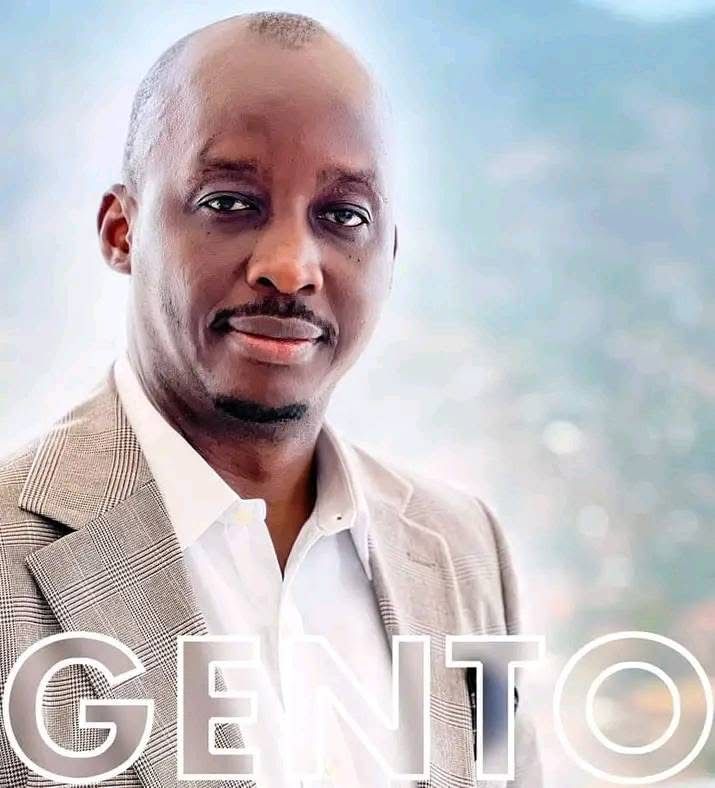(Part 1 )
In his appearance on Good Morning Salone on Radio Democracy 98.1 FM on 26 August 2025, Mohamed Gento Kamara, Chief Executive Officer of Gento Group of Companies, sought to defend his involvement in the controversial Kasafoni land lease agreement. However, his remarks expose deep flaws in both his reasoning and intentions, raising serious concerns about how business figures with political connections exploit Sierra Leone’s resources at the expense of its citizens.
Gento admitted that he signed a land lease agreement with local chiefs “on behalf of the people” of Diang, Sambaia and Dansogoia chiefdoms. Yet under Sierra Leone’s laws, mining agreements must follow strict procedures involving the Ministry of Mines and Mineral Resources, the National Minerals Agency (NMA), Parliament, and in some cases, Cabinet ratification.
By bypassing these institutions, Gento undermined the legal framework designed to protect communities and ensure that mining revenues are transparently managed. This makes his deal not just irregular but potentially unlawful.
Gento’s defense relied heavily on his claim that chiefs granted him authority to represent their people. This is a common strategy used by both local and international mining operators to co-opt traditional authorities, often with cash handouts, leaving ordinary villagers sidelined.
Sierra Leone’s history is full of such cases—London Mining in Marampa, African Minerals in Tonkolili, and even smaller domestic firms have all struck questionable deals with chiefs, enriching a few elites while leaving local communities impoverished and lands degraded. Gento’s attempt to present himself as acting for the “poor” is therefore deeply disingenuous.
Before his rise as a construction magnate, Gento was a little-known businessman abroad. His rapid accumulation of wealth and influence in Sierra Leone coincided with his growing ties to politicians. Today, he positions himself as both a contractor and investor, but his remarks on the radio reveal a pattern: leveraging the people’s plight to mask private deals.
It is telling that he offered no coherent explanation of how his company, without proven mining expertise, could single-handedly manage an iron ore concession of Kasafoni’s scale. Instead, he fell back on vague statements about “helping the people,” which lacked any rational or economic substance.
Perhaps the most troubling aspect is the question of financing. How can Gento—whose core business is construction—suddenly muster the hundreds of millions of dollars required for a proposed Banana Island transshipment port project? His inability to provide transparency fuels suspicion that he may be fronting for powerful foreign actors, some possibly with criminal or sanctions-tainted backgrounds.
If true, this would fit a long-standing pattern where local businessmen act as proxies for international interests seeking to exploit Sierra Leone’s natural resources under the cover of community development.
Finance Minister Sheku Fantamadi Bangura and other senior officials have been right to question and move against such irregular lease agreements. By placing the Kasafoni iron ore deposits under the oversight of the Sierra Leone Mines and Mineral Development and Management Corporation (SLMMDMC), the state is at least attempting to reclaim control over resources from private actors operating outside the law.
The lesson from past mining scandals is clear: when deals are signed in secrecy and without institutional checks, Sierra Leone loses billions, while communities are left with poisoned rivers, infertile farmlands, and broken promises.
Mohamed Gento Kamara’s remarks on Good Morning Salone were not just evasive but fundamentally dishonest. His insistence that he acted on behalf of the people is contradicted by the fact that his agreement bypassed the country’s mining laws and institutions. Instead of serving communities, his actions point to a familiar strategy: using chiefs and political connections to secure control over lucrative concessions, while ordinary Sierra Leoneans are left dispossessed.
The Kasafoni case should be a watershed moment. If Sierra Leone is to break free from the cycle of exploitation by rogue companies and opportunistic businessmen, the government must enforce the law strictly, cancel irregular leases, and ensure that any mining agreement is negotiated transparently and for the benefit of the people—not for the enrichment of a few politically connected individuals.
By Joe Turay
PUBLIC REVIEW NEWSPAPER 27th August 2025



